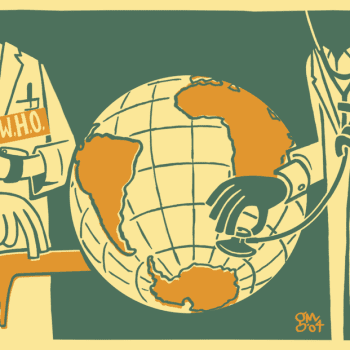How do we overcome the fundamental disconnect between our system of scattered bureaucratic responsibilities and almost no national economic planning vs. China’s top-down, disciplined and aggressive national economic development planning machine?
At issue is an array of Chinese policies and initiatives aimed at building “national champion” companies through subsidies and preferential policies while using China’s market power to appropriate foreign technology, tweak it and create Chinese “indigenous innovations” that will come back at us globally.
China has long been a “pay-to-play” market for foreigners, with mandated joint ventures in key industries, local manufacturing requirements and forced technology transfers as the price of market admission. Its entry into the World Trade Organization in 2001 was supposed to do away with the bulk of those barriers — and many were eliminated on paper.
But long gone are the days of China acting as a supplicant to gain access to foreign markets or obtain foreign investment. China now funds the U.S. budget deficit. Its rapidly developing domestic markets are expected to lead global growth for decades. The quarterly earnings of the world’s biggest multinational companies increasingly depend on their China business.
Chinese leaders — shrewd students of political and economic leverage — are shifting their focus from global trade and investment principles to the creation of their own rules and a “China model” of economic development that is difficult to challenge in international courts. Chinese policymakers are masters of creative initiatives that slide through the loopholes of WTO and other international trade rules. Facing off against this are 30 lawyers in the U.S. trade representative’s office of general counsel — only one of whom can read Chinese. This small cadre handles all WTO cases and supports all our trade negotiations globally. Only a half-dozen people in the office focus on China.
As part of their “China model,” that country’s leaders have decided that key sectors of the economy will remain “state dominated,” including automotive, chemical, construction, electronic information, equipment manufacturing, iron and steel, non-ferrous metals, and science and technology. Others will stay “largely in state hands,” including aviation, coal, defense, electric power and grid, oil and petrochemicals, shipping and telecommunications. State-owned companies in these industries are thriving in their protected home market. They have buckets of cash and easy access to state bank loans to carry out government directives to pursue overseas acquisitions and “go global.”
Most worrisome is the Chinese government mandate to replace core foreign technology in critical infrastructure — such as chips, software and communications hardware — with Chinese technology within a decade. The tools to accomplish this include a foreign-focused anti-monopoly law, mandatory technology transfers, compulsory technology licensing, rigged Chinese standards and testing rules, local content requirements, mandates to reveal encryption codes, excessive disclosure for scientific permits and technology patents, discriminatory government procurement policies, and the continued failure to adequately protect intellectual property rights. The poster child is the evolving “indigenous innovation” policy, which appears aimed at using China’s market power to coerce foreign companies to transfer and license their latest technology for “co-innovation” and “re-innovation” by Chinese companies.
via James McGregor – Time to rethink U.S.-China trade relations.
Notice that this is NOT free market economics but state-run and state-directed economics that takes advantage of capitalist economies by means of state monopolies, coercive government power, and economic clout.















